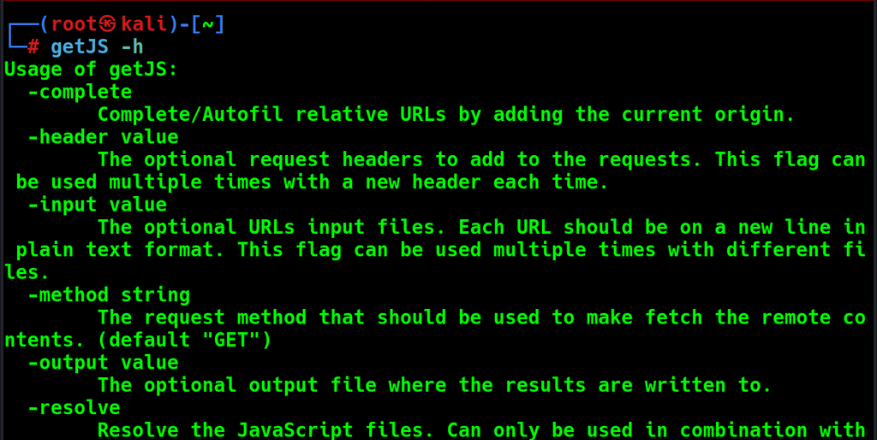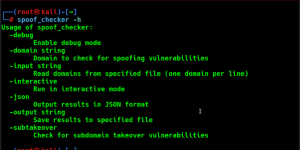Recon Tool: getJS

Reading Time: 2 Minutes
getJS
getJS, developed by 003random, is a tool for extracting JavaScript sources from URLs and web pages / HTTP responses. It offers a command-line interface (CLI) for straightforward URL processing and a package interface for custom integrations, making it ideal for pentesters, bug bounty hunters, and developers needing to extract JS sources efficiently.
See Also: So you want to be a hacker?
Offensive Security and Ethical Hacking Course
Installation
To install getJS, use the following command:
go install github.com/003random/getJS/v2@latest
CLI Usage
Options
getJS provides several command-line options to customize its behavior:
- -url string: The URL from which JavaScript sources should be extracted.
- -input string: Optional URLs input files. Each URL should be on a new line in plain text format. Can be used multiple times.
- -output string: Optional output file where results are written to. Can be used multiple times.
- -complete: Complete/Autofill relative URLs by adding the current origin.
- -resolve: Resolve the JavaScript files. Can only be used in combination with –complete.
- -threads int: The number of processing threads to spawn (default: 2).
- -verbose: Print verbose runtime information and errors.
- -method string: The request method used to fetch remote contents (default: “GET”).
- -header string: Optional request headers to add to the requests. Can be used multiple times.
- -timeout duration: The request timeout while fetching remote contents (default: 5s).
See Also: Offensive Security Tool: Nucleimonst3r
Examples
Extracting JavaScript from a Single URL
getJS -url https://destroy.ai
or
curl https://destroy.ai | getJS
Using Custom Request Options
getJS -url "http://example.com" -header "User-Agent: foo bar" -method POST --timeout=15s
Processing Multiple URLs from a File
getJS -input foo.txt -input bar.txt
Saving Results to an Output File
getJS -url "http://example.com" -output results.txt
Package Usage
Importing the Extractor
To use getJS as a package, you need to import the extractor package and utilize its functions directly.
Example
package main
import (
"fmt"
"log"
"net/http"
"net/url"
"github.com/003random/getJS/extractor"
)
func main() {
baseURL, err := url.Parse("https://google.com")
if (err != nil) {
log.Fatalf("Error parsing base URL: %v", err)
}
resp, err := extractor.FetchResponse(baseURL.String(), "GET", http.Header{})
if (err != nil) {
log.Fatalf("Error fetching response: %v", err)
}
defer resp.Body.Close()
// Custom extraction points (optional).
extractionPoints := map[string][]string{
"script": {"src", "data-src"},
"a": {"href"},
}
sources, err := extractor.ExtractSources(resp.Body, extractionPoints)
if (err != nil) {
log.Fatalf("Error extracting sources: %v", err)
}
// Filtering and extending extracted sources.
filtered, err := extractor.Filter(sources, extractor.WithComplete(baseURL), extractor.WithResolve())
if (err != nil) {
log.Fatalf("Error filtering sources: %v", err)
}
for source := range filtered {
fmt.Println(source.String())
}
}
Clone the repo from here: GitHub Link









